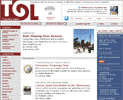
Our Take: Rearing Its Ugly Head
Georgia is the latest target of Moscow's officially-sanctioned jingoism. Tomorrow it could just as easily be somebody else.
More...We kindly inform you that, as long as the subject affiliation of our 300.000+ articles is in progress, you might get unsufficient or no results on your third level or second level search. In this case, please broaden your search criteria.

Georgia is the latest target of Moscow's officially-sanctioned jingoism. Tomorrow it could just as easily be somebody else.
More...
There will never be a better time for Central European governments of all stripes to push for speedy euro adoption.
More...
Running against a bunch of unknowns, the Tajik leader can be certain of re-election on 6 November. His hold on power looks solid for the foreseeable future.
More...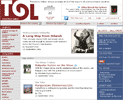
With its villages dying and its capital bursting at the seams, can Bulgaria deal with the global trend of urbanization?
More...
Albanian authorities are prosecuting more child traffickers, but there's no way of knowing if it's making a difference
More...
Two years later, investigators say the Russian government is trying hard to bury the truth about the Beslan school siege.
More...
Something is rotting in Kyrgyzstan and the West has done too little to prevent it.
More...
Their strongly shared faith and conservative views are not enough to dampen Lech Walesa's dislike for Poland's twin leaders.
More...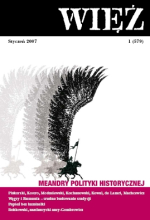

Branches of Russian universities give select Uzbek students what they can't always get locally: prestige and jobs.
More...
In a disputed corner of the Caucasus, some settlers have given up much of the modern world, including electricity, to stake a claim to a territory.
More...
Much of Europe and the former Soviet Union pays too much for energy. There are ways to cut the bill.
More...
Is there any better proof of a nuclear comeback than Belarus’ plans for a new plant?
More...
For one entrepreneur, making the windmill was the easy part. Getting it to catch on has been another matter.
More...
Kazakhstan’s goal to become the global leader in uranium production could put strains on non-proliferation efforts.
More...
Coal is the dirtiest yet most crucial energy source in Central Europe. That could make the region one of the best laboratories for clean coal technologies.
More...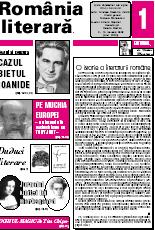
"the Romanians found yet another scape goat for their problems" says the author "after the Hungarians, the Jews and the world financial chaos, it's now Vaclav Havel's turn." In this context, tha author talks about Romania's integration in the EU and NATO.
More...
In issue no. 44 of 2001, România Literară published (after The New York Review of Books) an extended text about Romania written by the American political philosopher Tony Judt. This text was accompanied by an editorial comment. Tony Judt's text determined strong remarks in the whole Romanian media. România Literară publishes now an interview with Tony Judt (with D.R.Popa).
More...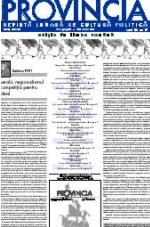
The writer Petru Dumitriu suggested to the Romanian people to take into consideration the Swiss model in the context of the regionalisation. The article is an interview of George Pruteanu with Petru Dumitriu in 1993. This interview is a chapter of the book “6 Days with Petru Dumitriu” – the chapter refers to the federalization of Romania.
More...